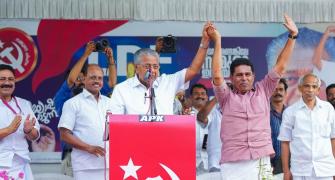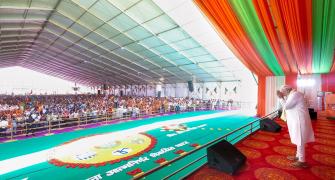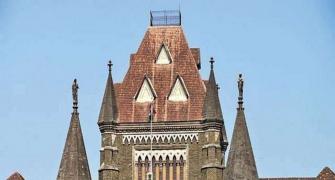India today stands at a crossroads in its relations with the rest of the world. Being one of the most powerful economies in the world today gives India clout on the global stage matched only by a few other States.
Coupled with highly professional armed forces well-ensconced in a liberal democratic polity, India is emerging as an entity that can decisively shift the global balance of power. As a consequence, the lens through which India has traditionally viewed the rest of the world is increasingly unable to do justice to India's growing stature in the international system.
Flush from its recent economic success and on its way to emerge as a major global player, India today is struggling to define itself, to comprehend not only its power capabilities but also the possibilities and limits of that power.
While there is an emerging consensus among Indian policymakers and the larger strategic community that the old foreign policy framework, perhaps adequate for the times when it was developed, is no longer capable of meeting the challenges of the times, there is little consensus on a strategic framework around which India should structure its external relations in the present global context as the fracas over the nuclear pact makes clear.
But the world is not waiting for India to put its own house in order and to come to terms with its rising profile. Already, demands are being made on India by the international community, expecting it to play a global role in consonance with its rising stature. India is now being invited to the G-8 summits, is being called on to shoulder global responsibilities from nuclear proliferation to global warming to Iraq, and is being viewed as much more than a mere 'South Asian' power.
For long, India had the luxury of being on the periphery of global politics from where it was relatively easy to substitute 'sloganeering' for any real foreign policy. India, with some skill, used issues like Third World solidarity and general and complete nuclear disarmament to make its presence germane on the international stage.
But international politics is an arena where outcomes are largely determined by the behaviour of major powers. It is the actions and decisions of great powers that, more than anything else, determine the trajectory of international politics. And being a minor power without any real leverage in the international system, India could do little of import except criticise the major powers for their 'hegemonistic' attitudes.
Today, as India itself has moved to the centre of global politics with an accretion in its economic and military capabilities, it is being asked to become a stakeholder in a system that it has long viewed with suspicion.
As a consequence, howsoever difficult it may seem, India will have to come to terms with this new reality. India is a rising power in an international system that is in flux, and it will have to make certain choices that probably will define the contours of Indian foreign policy for years to come. The stakes are just too high for India and the sooner India decides its trajectory the better.
For long, there was a myth propagated by the political elites in the country that there has been a general consensus across political parties on major foreign policy issues. Aside from the fact that such a consensus has more been a result of intellectual laziness and apathy than any real attempt to forge a coherent grand strategy that cuts across ideological barriers, this is most certainly an exaggeration as till the early 1990s, the Congress party's dominance over the Indian political landscape was almost complete and there was no political organisation of an equal capacity that could bring to bear its influence on foreign and security policy issues in the same measure.
It was the rise of the Hindu nationalist Bharatiya Janata Party that gave India a significantly different voice on foreign policy. But more importantly it is the changes in the international environment that have forced Indian policy makers to challenge some of the assumptions underlying their approach to the outside world.
The debate on the US-India nuclear deal has brought the fissures in Indian foreign and security policy issues out in the open. Indian policy stands divided on fundamental foreign policy choices facing the nation.
What Walter Lipmann wrote for US foreign policy in 1943 applies equally to the Indian landscape of today. He had warned that the divisive partisanship that prevents the finding of a settled and generally accepted foreign policy is a grave threat to the nation. 'For when a people is divided within itself about the conduct of its foreign relations, it is unable to agree on the determination of its true interest. It is unable to prepare adequately for war or to safeguard successfully its peace.'
In the absence of a coherent national grand strategy, India is in the danger of losing its ability to safeguard its long-term peace and prosperity. Despite enormous challenges that it continues to face, India is widely recognised today as a rising power with enormous potential. The portents are hopeful if only the Indian policy-makers have the imagination and courage to seize some of the opportunities.
The parliamentary debate on the nuclear deal will give Indians an opportunity to assess how their political leaders want their country to engage with the rest of the world. And then it will be up to them to decide whose views they are comfortable with. Either way it is one of the most substantive foreign policy decisions this country may have to make in a generation. Here's wishing the best ideas prevail.
Dr Harsh Pant teaches at King's College, London.







